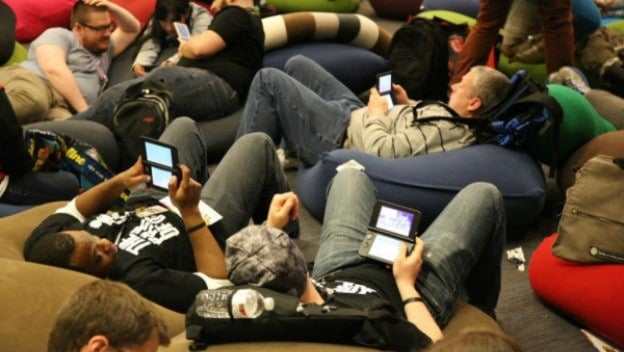Someone is always looking for a scapegoat for systemic issues. Video games, in particular, are a good target. They fit quite snugly over the generational gaps that often are the crux of whatever issue needs a finger pointed at it. This time around, video games are now being examined as the reason young people are not as financially successful as their elders. When you set up shop in a vacuum and refuse to look beyond the surface, sure, there are a ton of younger people, millennials if you will, working less hours for less money and playing more cumulative hours of video games. Sure, there is a correlation, a line to be drawn between these two statistics. But it is not a direct causation. Video games are not causing millennials to work less, millennials are working less because the economy sucks, the workforce is toxic and videogames just happen to be there are a tangible escape from reality that offers relaxation, intellectual stimulation and even community.
I am specifically reacting to a recent piece in The Economist , by Ryan Avent, called “Escape to Another World.” Avent, using economic knowledge, jargon and “gamer” testimony, explores the issue with a nuance and depth I cannot get into here, so definitely read it. Rather than quote-mine the piece like I’m writing a college essay in response, I intend to use this piece as a springboard into my own take on the issue. You see, I myself am a millennial, and I’m getting pretty sick and tired of all my and my peers problems being blamed on us, by people who are actually responsible for this mess.
I play a lot of video games. Always have, always will. Gaming is an extension of my love for storytelling, one I can reach out and touch, interact with, control. It’s a way to find new perspectives and really feel like I’m walking in someone else’s shoes, even if all I’m actually doing is holding a chunk of plastic in my hands and pressing buttons. I also, in addition to channeling my passion for video games into this here writing business, have a day job in an office. I’m one of the lucky ones, able to squeak by with a living wage.
I didn’t get the jobs I have because of my hard work. I didn’t get the jobs I have because of my college degree. These are factors, but not the linear path. Through meeting people and establishing connections, through knowing the right people and through simply being lucky, I have what I have. I know plenty of people who work as hard or harder than I do, as smart or smarter than I am, who have yet to hit the mark. And guess what – we all play video games.
Video games, like literally any other piece of media, are an escape. An escape from the harshness of reality, an escape from poverty, hunger, fear, dread. Games are an escape from deadlines and due dates, balances and receipts. So are books, movies, exercise, so on and so forth. None of these mechanisms of play and escape are the direct cause of millennial job difficulties. They represent a roof over the head in the middle of a thunderstorm.

The real problem is the continued fallout from the recession, the continued abuse of the working class at the hands of the business owners, those with their hands on the keys, those who offer unpaid internships, minimum wage and crappy benefits. Who wants to kill themselves to spend eight hours every day so some people in suits can reap the benefits instead of you? Does it really shock people that some would rather earn just enough to eat and play Destiny with their friends and not bother with anything else? Someone like me, in their 20s, used to the world being as crappy as it can be (especially if, unlike me, you aren’t white or male), looks at working 40 hours a week for a pittance, says, “No thanks,” and that’s our fault? Please.
My generation has a lot to figure out, as does the one after mine. We have the burden of American excess resting squarely on our shoulders, all the while being told left and right it’s our fault. We’re lazy, we’re violent, and we play too many video games. Maybe the reason young people play so many video games is because it’s a more engaging use of our time than killing ourselves to put out all the fires. Maybe sitting down to meet up with our friends online during our leisure is more emotionally fruitful than spending even more time at the office at boring work functions or hanging out at horse races or whatever with the management and listening to boomers groan about taxes. The problem isn’t video games, or us. The problem is, well, imagine me going outside and waving my arms toward my entire surroundings.
